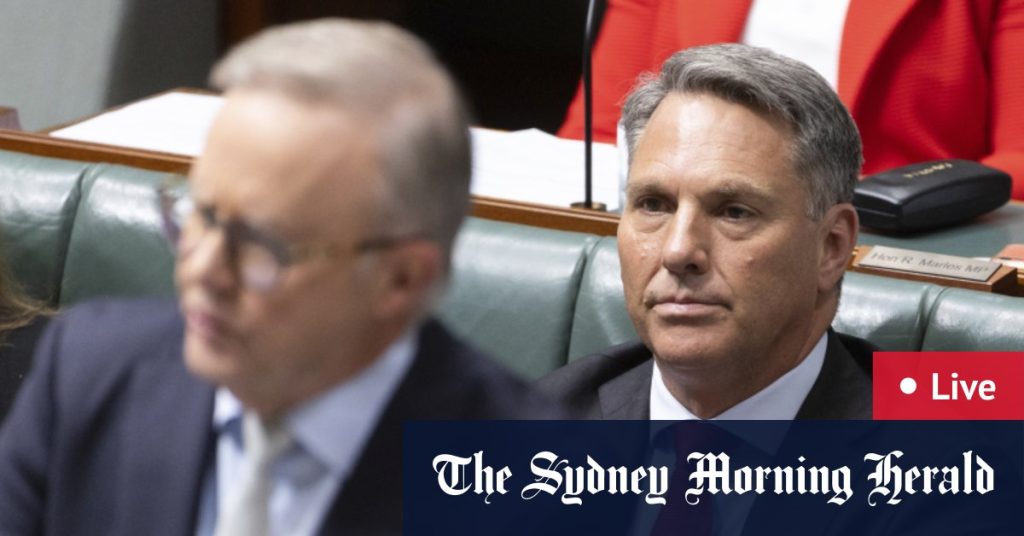In response to accusations made by the Greens party, the Australian government has provided additional information regarding its exports to Israel, refuting claims of complicity in genocide. The government’s clarification comes after the Greens raised concerns about Australia’s trade relationship with Israel, specifically in light of recent conflicts in the region. The government maintains that its exports to Israel are conducted in accordance with established regulations and that it does not support or condone any actions that could be considered complicit in genocide.
Prime Minister Anthony Albanese has criticized Opposition Leader Peter Dutton, claiming that he is worse than former Prime Minister Scott Morrison on issues related to climate change. Albanese’s comments come amidst growing concerns about the impact of climate change on Australia and the need for stronger action to address this global issue. The Prime Minister’s remarks suggest a divergence in policy positions between the government and the opposition on climate change, with Albanese urging for more proactive measures to combat climate change.
The government’s response to accusations of complicity in genocide and the Prime Minister’s criticism of the Opposition Leader highlight the contentious nature of key political issues in Australia. The debate over Australia’s exports to Israel and the government’s stance on climate change reveal deep divisions within the political landscape and underscore the challenges facing policymakers in addressing complex international and domestic issues. These developments underscore the need for ongoing dialogue and debate on critical issues to ensure that appropriate policies are implemented to address pressing challenges.
The relationship between Australia and Israel has come under scrutiny in recent years, particularly in light of ongoing conflicts in the region and allegations of human rights abuses. The Australian government’s transparency regarding its exports to Israel is an important step in addressing concerns about potential complicity in human rights violations. By clarifying its trade practices and reaffirming its commitment to upholding ethical standards in international relations, the government aims to promote accountability and transparency in its foreign policy decisions.
Albanese’s criticism of Dutton on climate change reflects broader debates within Australian politics about the urgency of addressing environmental issues. With increasing public awareness of the impacts of climate change, political leaders are under pressure to demonstrate their commitment to environmental sustainability and take decisive action to mitigate the effects of global warming. Albanese’s remarks signal a growing emphasis on climate change as a key policy priority for the government, highlighting the need for coherent and effective strategies to tackle this pressing challenge.
Overall, the government’s response to allegations of complicity in genocide and Albanese’s criticism of Dutton on climate change underscore the importance of transparency, accountability, and decisive action in addressing key political issues. As Australia grapples with complex domestic and international challenges, including ethical considerations in trade relationships and the urgent need to combat climate change, political leaders must engage in meaningful dialogue and take proactive steps to address these pressing concerns. By fostering open debate and promoting responsible decision-making, policymakers can work towards ensuring a more sustainable and equitable future for all Australians.


